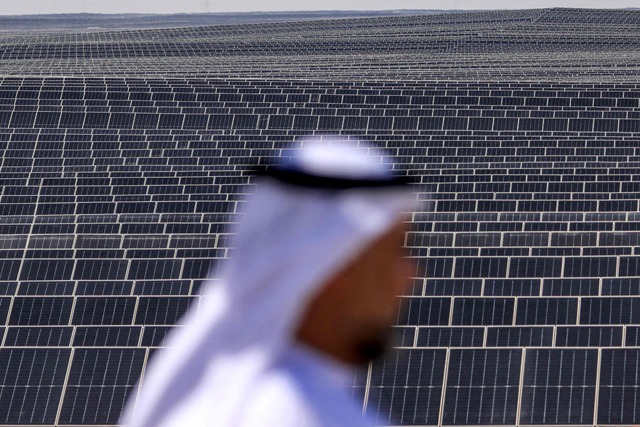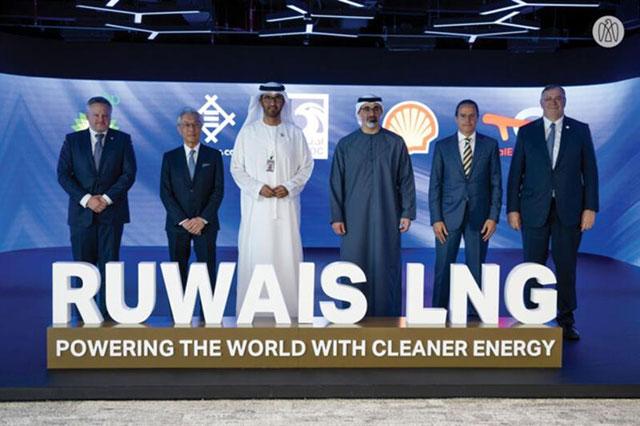You are here
UAE inaugurates giant solar plant, two weeks before climate talks
By AFP - Nov 18,2023 - Last updated at Nov 18,2023

An Emirati man stands in front of photovoltaic panels at al-Dhafra Solar Photovoltaic (PV) Independent Power Producer (IPP) project south of the capital Abu Dhabi, on November 13 (AFP photo)
AL DHAFRA — The United Arab Emirates inaugurated recently one of the world's biggest solar plants, two weeks before the oil-rich Gulf state hosts UN climate talks.
The Al Dhafra plant, south of the capital Abu Dhabi, stretches over 21 square kilometres of desert, an area about one-fifth the size of Paris.
Its rows of photovoltaic panels rotate to follow the sun and are kept clear of sand and dust by robotic cleaning modules.
"This project... will bring low-carbon electricity to the Emirates," said Bruno Bensasson, CEO of France's EDF Renewables, one of the partners in the project.
The UAE is on a drive to triple its renewable energy over the next seven years as it attempts to achieve "net zero" in domestic carbon emissions by 2050.
At the same time, state oil company ADNOC plans to increase its crude production from around 3 million barrels per day to five million by 2027. Emissions from exports are not included in domestic carbon tallies.
The argument over phasing out fossil fuels — the main driver of wealth in the Gulf — against targeting their emissions is expected to be a key battleground at the COP28 climate talks in Dubai from November 30.
COP28 president and UAE climate envoy, Sultan Al Jaber, is also CEO of ADNOC and chairman of renewable energy group Masdar, which together with another public company, TAQA, owns 60 per cent of the Al Dhafra project.
The remainder is held by EDF Renewables and China's Jinko Power Technology.
The plant will save CO2 emissions to the tune of "over two million tonnes a year, which is equivalent to 800,000 cars off the road", said Jinko president Charles Bai.
Al Dhafra, about 30 kilometres from Abu Dhabi, has a production capacity of two gigawatts and will provide carbon-free energy to 160,000 homes, its website says.
The UAE's carbon-reduction efforts are rated as "insufficient" by Climate Action Tracker, which says plans to increase hydrocarbon production and consumption means the country will miss its targets.
The website, which describes itself an independent scientific project, tracks government action to stick to the 2015 Paris Agreement of keeping global warming well below two degrees Celsius above pre-industrial levels, and pursue a 1.5ºC threshold.
Related Articles
DUBAI — Emirati energy giant ADNOC said on Thursday it had awarded contracts to build a major gas project, just a few weeks before the Gulf
WASHINGTON — The United States announced a clean energy partnership on Tuesday with the United Arab Emirates worth $100 billion, the White H
DUBAI — Energy majors TotalEnergies, Shell and BP will each take a 10 per cent stake in a liquefied natural gas project in the United Arab E












